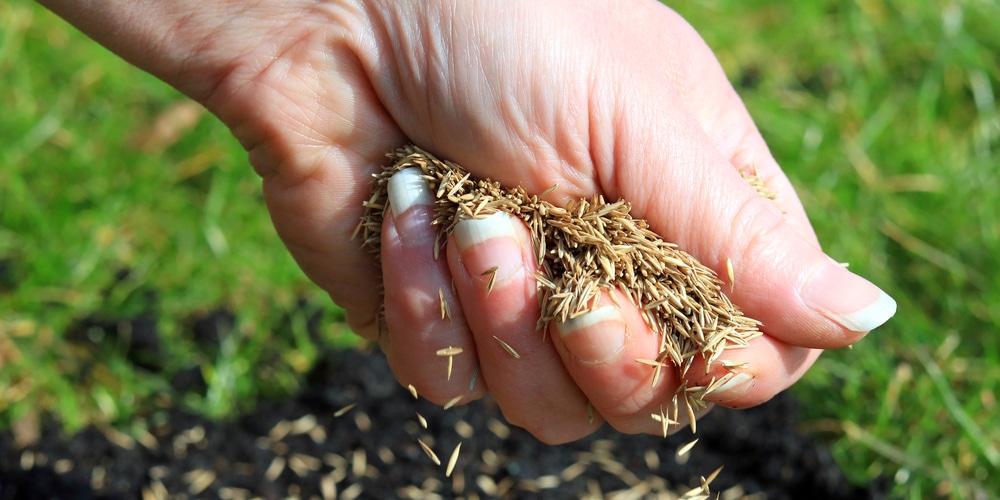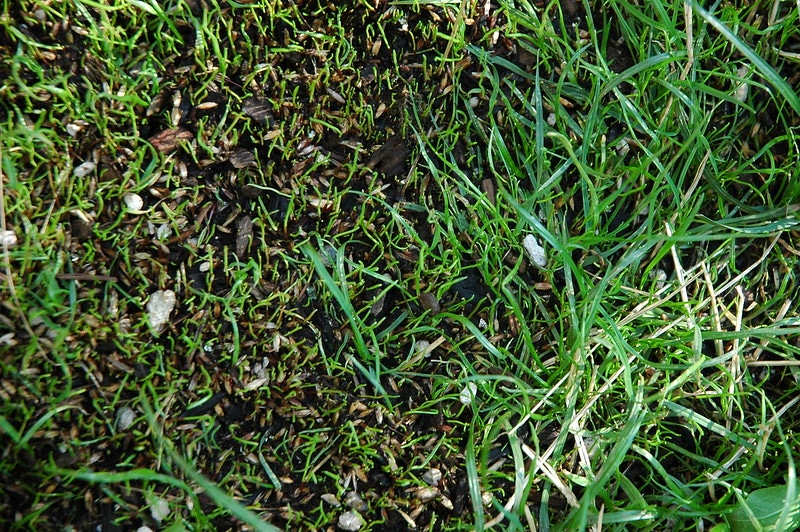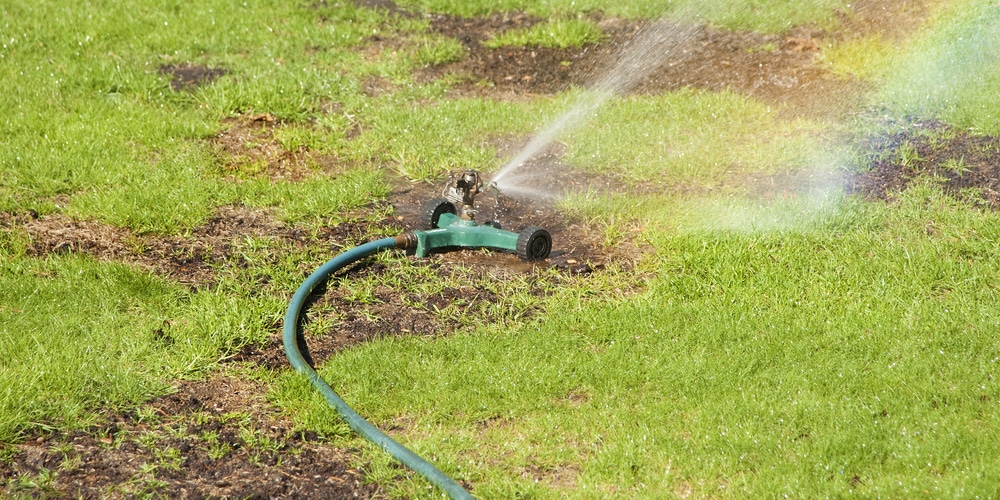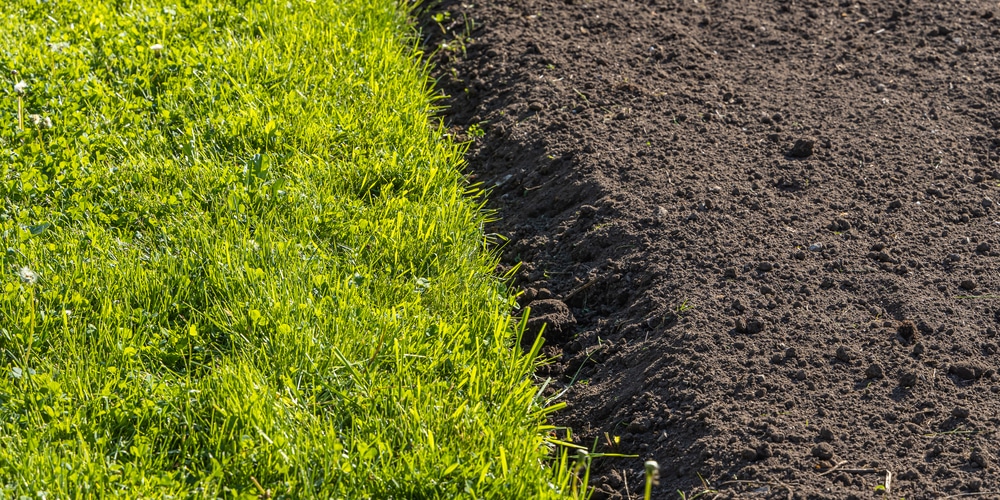| Question | How Long for Grass Seed to Germinate? |
|---|---|
| Answer | Typically 5 to 30 Days |
| More Info | The germination time varies based on grass type, soil conditions, watering, and weather. For example, ryegrass can germinate in as little as 5 days under optimal conditions, while Kentucky bluegrass may take up to 30 days. Ensuring the soil is properly prepared, maintaining consistent moisture without overwatering, and choosing the right time of year for planting are key factors for successful germination. |
Planting grass seed can be a fulfilling way to enhance your lawn’s beauty and create that vivid green space you’ve always desired.
Understanding the germination process is crucial because it sets the foundation for a healthy lawn.
It’s important to note that the time it takes for grass seed to germinate varies based on several factors, including the type of grass, the quality of the seed, and environmental conditions.
The germination window for grass seed can range from as little as five days to upwards of thirty days. For example, under optimal conditions, perennial ryegrass often starts to sprout within 5 to 10 days, while Kentucky bluegrass may take 14 to 30 days to germinate.
Soil temperature plays a significant role; cool-season grasses prefer a range between 50-65 degrees Fahrenheit, whereas warm-season grasses germinate best when the soil is between 65-70 degrees Fahrenheit.
Properly preparing your soil, choosing the right time of year, and providing sufficient water and nutrients can optimize the conditions for your grass seed to germinate effectively.
By paying attention to these details, you are setting the stage for a lush and enduring lawn.
Remember, patience is key—the transformation from seeds to blades of grass can be gradual, but the results of your efforts will be evident in the thick, green turf that eventually blankets your yard.
Factors Affecting Germination
Several pivotal elements influence the germination rate and success of grass seed. Understanding these factors will crucially guide you to achieve a lush lawn.
Seed Quality
Selecting high-quality grass seed greatly determines your germination outcome.
Examine seeds for freshness and check for a high purity and germination rate on the label, which should typically exceed 85%.
Soil Temperature
Grass seeds require specific soil temperatures to germinate effectively.
For cool-season grasses, aim for soil temperatures between 45°F and 55°F. Warm-season grasses need warmer conditions, around 60°F to 75°F.
Moisture Levels
Consistent moisture is non-negotiable for successful germination.
You need to keep the soil evenly moist, watering lightly several times a day to prevent the delicate seeds from drying out or becoming waterlogged.
Soil Type
Soil structure and nutrient content are vital; your soil should be loose, non-compacted, and rich in organic matter.
Consider a soil test to assess nutrient levels and amend the soil as needed for optimal grass seed germination.
Germination Timeframe
When you plant grass seed, the germination timeframe can vary widely depending on the type of grass and environmental conditions. Understanding this schedule ensures that you provide the appropriate care during this crucial stage.
Average Germination Times
Grass seed generally begins to germinate within 5 to 30 days after planting. However, this is an average range, and specific grass types and conditions can alter this timeline significantly.
- Soil Temperature: Ideal soil temperatures for germination range from 50-65 degrees Fahrenheit.
- Moisture Levels: Consistent moisture is essential but balance is required to prevent waterlogging.
- Soil Quality: Rich, well-draining soil can substantially improve germination rates.
Variations by Grass Type
Each grass type has its own specific germination time. Here are average timelines for some popular grass varieties:
- Buffalo Grass: 14-30 days
- Centipede Grass: 14-21 days
- Bermudagrass: 10-30 days
- Zoysia Grass: 14-21 days
- Kentucky Bluegrass: 14-30 days
For more in-depth information on specific grass types, you might want to read about grass seed germination times at Lawn Chick and learn about the importance of soil temperatures from Revive Garden.
Planting for Success
Before you begin planting grass seeds, it’s crucial to understand the right methods, watering practices, and soil preparation techniques. Each step plays an essential role in ensuring optimal germination and the best start for your new lawn.
Seeding Methods
When you’re ready to seed your lawn, you can choose between broadcast seeding, drop seeding, or overseeding for existing lawns.
- Broadcast seeding is ideal for large areas. Uniformly scatter seeds either by hand or with a broadcast spreader for coverage.
- Drop seeding: Utilize a drop spreader for precise control, which is especially useful in smaller or irregularly shaped areas.
- For existing turf, overseeding ensures a denser lawn by spreading new seed over the current grass.
Remember to lightly rake the soil after seeding to ensure the seeds make good contact with the soil, which is pivotal for moisture access and growth.
Watering Practices
Proper watering is indispensable for seed germination.
- Your initial goal is to keep the top inch of soil consistently moist without causing water logging.
- Water lightly and frequently, typically 2-3 times a day, until the seeds germinate.
- Once seeds have sprouted, reduce the frequency but increase the depth of watering to encourage deeper root growth.
Avoid over-watering, as excessive moisture can promote disease and negatively impact seed germination.
Soil Preparation
Your grass’s health starts with the soil. Proper soil preparation can make a significant difference in germination and the overall success of your lawn.
- Begin with Soil testing to determine pH and nutrient levels; aim for a pH between 6.0 and 7.0.
- Till the soil to a depth of 4-6 inches and remove debris or old roots.
- Level the area and ensure good soil-to-seed contact by lightly compacting the soil after seeding.
Incorporate starter fertilizer rich in phosphorus to promote robust root development during this initial stage.
Maintenance in the Long Run
Once your grass seed has germinated, the actual work begins to ensure the establishment of a healthy and hardy lawn. Attention to detail in fertilization, mowing, and watering will pay off in the long term with robust growth.
Fertilization
Your newly germinated grass requires nutrients to thrive, with nitrogen being particularly crucial during early growth.
Typically, four to eight weeks after germination, you should apply a starter fertilizer with a high phosphorus content to promote strong root development.
Follow the manufacturer’s guidelines for the appropriate amount and frequency of application.
Mowing
Mowing can begin once the grass reaches about 3 inches in height.
Ensure your mower blades are sharp to avoid tearing the tender new blades of grass.
It’s important to only remove the top one-third of the grass height to prevent stress and allow for root growth.
During initial mows, avoid tight turns with the mower to protect the young grass from uprooting.
Watering Schedule
Consistent moisture is critical for new grass, but overwatering can lead to problems.
Aim to keep the soil moist to a depth of about 1 inch. This may require watering once or twice daily, depending on weather conditions.
As the grass matures, you can gradually reduce watering frequency, encouraging deeper root development.
A general guideline is to provide 1 to 1.5 inches of water per week, either from rainfall or supplemental watering.
Frequently Asked Questions
When it comes to germinating grass seed, your success greatly depends on understanding and managing several key factors.
What are the ideal conditions for grass seed germination?
The ideal conditions involve a combination of warm soil temperatures, typically between 50 and 65 degrees Fahrenheit, consistent moisture, sunlight, and good soil-to-seed contact. Seeds need a well-prepared seedbed that’s loose and free of debris to thrive.
Can grass seed germination occur directly on top of the soil?
Yes, grass seed can germinate on top of the soil, but it’s less likely to be successful. For optimal results, it’s recommended that seeds have light coverage of soil or compost to provide protection and retain moisture.
What steps can be taken to accelerate the germination of grass seed?
To speed up germination, ensure your soil is the proper temperature, use a starter fertilizer appropriate for your grass type, and keep the soil consistently moist but not waterlogged. Reducing foot traffic on the area also helps.
How often is watering necessary for newly sown grass seed?
Regular watering is crucial, especially within the first few weeks of planting.
Aim to keep the soil consistently moist with light, frequent watering sessions. This is typically twice a day until germination occurs.
What are the signs that grass seed is starting to germinate?
The first sign is tiny green sprouts emerging from the soil.
You may also notice the seed itself swelling and changing in appearance as it begins the germination process.
Why might grass seed fail to germinate within the expected timeframe?
Possible causes for delayed germination include planting in temperatures that are too low or too high, insufficient watering, excessive foot traffic, or poor soil preparation.
Ensuring proper conditions and care will help to mitigate these issues.
Last update on 2025-06-06 / Affiliate links / Images from Amazon Product Advertising API







